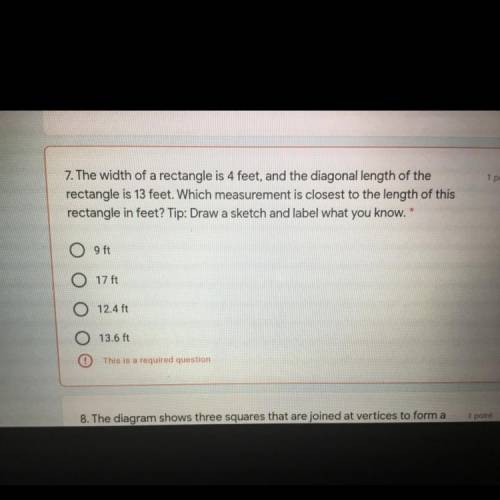Plzz help I have a time test
...

Mathematics, 26.04.2021 22:20 makenna72
Plzz help I have a time test


Answers: 3


Other questions on the subject: Mathematics

Mathematics, 21.06.2019 15:50, winterblanco
Which of the following is the equation that says that the product of a number and ten is equal to 20 percent of that number ? a) 10n= 2.0n b) 10+n=.20n c) n+ .20n=10 d) 10n=0.20n
Answers: 1

Mathematics, 21.06.2019 20:00, PastryCrisp
The function f(x) = 14,600(1.1)* represents the population of a town x years after it was established. what was the original population of the town?
Answers: 1

Mathematics, 21.06.2019 20:30, kuddlebugsmommy
Martha has a deck of cards. she has lost some of the cards, and now the deck only contains nine spades, eleven diamonds, eight clubs, and twelve hearts. martha predicts that whenever she draws a card from the deck without looking, she will draw a club one-fifth of the time. which activity would best allow martha to test her prediction? a. randomly draw a card from the box and see if it is a club. b. randomly draw a card. then, continue to draw another card until all eight clubs are drawn. c. randomly draw and replace a card 120 times. then, observe how close to 30 times a club is drawn. d. randomly draw and replace a card 100 times. then, observe how close to 20 times a club is drawn.
Answers: 1

Mathematics, 21.06.2019 21:30, gonzalezashley152
In a test for esp (extrasensory perception), the experimenter looks at cards that are hidden from the subject. each card contains either a star, a circle, a wave, a cross or a square.(five shapes) as the experimenter looks at each of 20 cards in turn, the subject names the shape on the card. when the esp study described above discovers a subject whose performance appears to be better than guessing, the study continues at greater length. the experimenter looks at many cards bearing one of five shapes (star, square, circle, wave, and cross) in an order determined by random numbers. the subject cannot see the experimenter as he looks at each card in turn, in order to avoid any possible nonverbal clues. the answers of a subject who does not have esp should be independent observations, each with probability 1/5 of success. we record 1000 attempts. which of the following assumptions must be met in order to solve this problem? it's reasonable to assume normality 0.8(1000), 0.2(1000)%30 approximately normal 0.8(1000), 0.2(1000)% 10 approximately normal srs it is reasonable to assume the total number of cards is over 10,000 it is reasonable to assume the total number of cards is over 1000
Answers: 1
You know the right answer?
Questions in other subjects:



History, 19.03.2020 01:21




Mathematics, 19.03.2020 01:21


Mathematics, 19.03.2020 01:22

History, 19.03.2020 01:22



